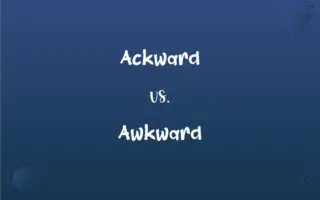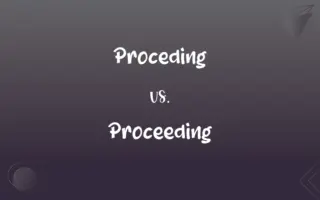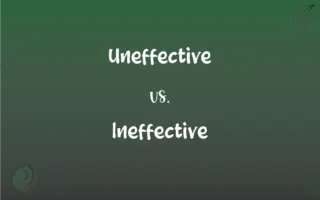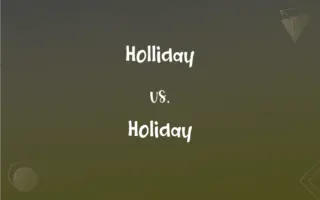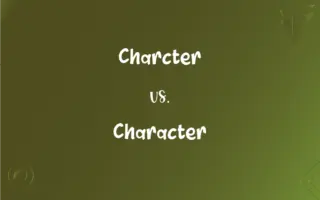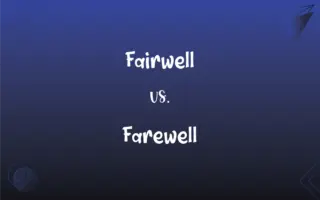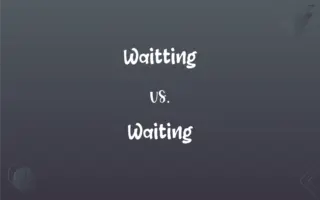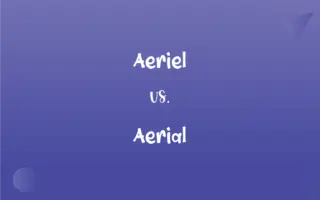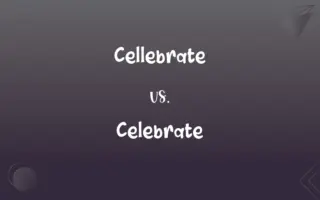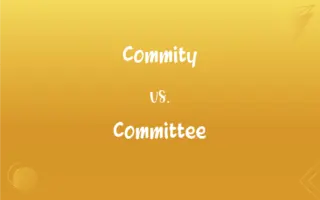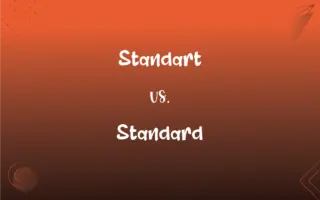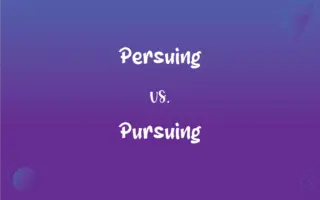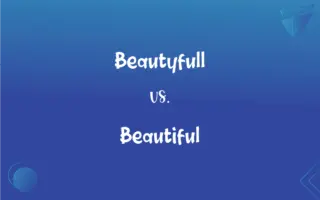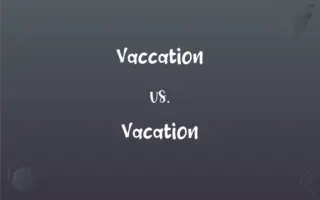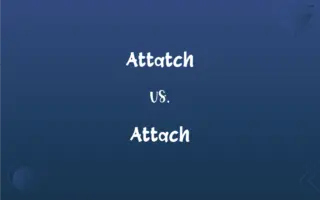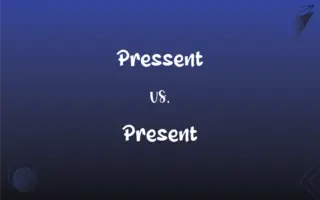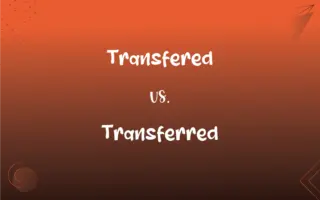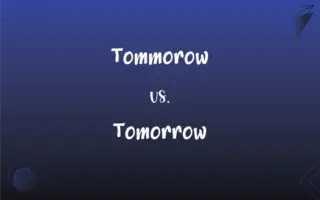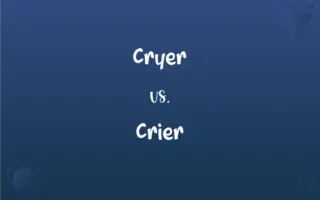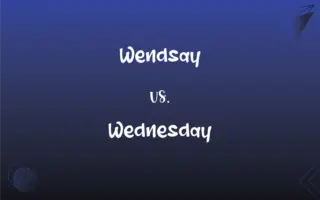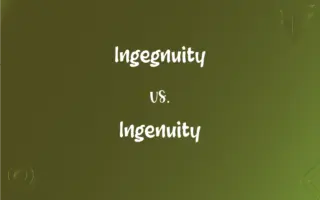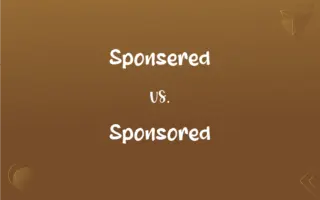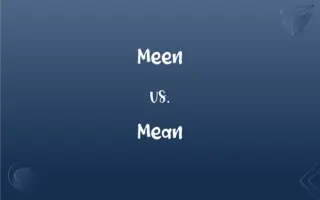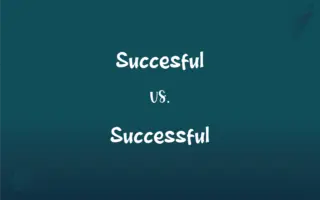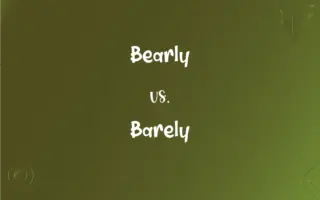Forsee vs. Foresee: Mastering the Correct Spelling
Edited by Aimie Carlson || By Janet White || Updated on March 8, 2024
"Forsee" is incorrect, while "foresee" is the correct spelling. Foresee means to anticipate or predict something that will happen in the future.
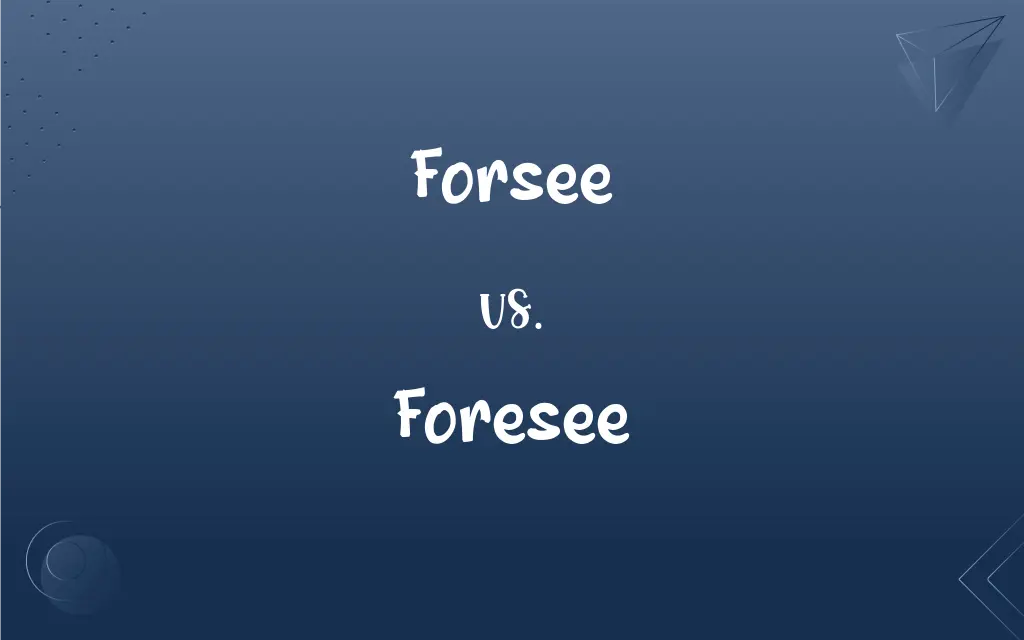
Which is correct: Forsee or Foresee
How to spell Foresee?

Forsee is Incorrect

Foresee is Correct
ADVERTISEMENT
Key Differences
"Foresee" combines "fore-" (ahead) with "see," implying looking forward.
Recall that "fore-" is a common prefix in English, as in "forecast."
Link "foresee" with other "fore-" words like "foretell" or "forewarn."
Think of "foresee" as seeing into the future, with "fore" indicating before.
Visualize foreseeing something ahead in time; "fore" suggests forward.
ADVERTISEMENT
Correct usage of Foresee
She couldn't forsee the consequences of her actions.
She couldn't foresee the consequences of her actions.
It's hard to forsee the outcome of the election.
It's hard to foresee the outcome of the election.
We didn't forsee the storm coming.
We didn't foresee the storm coming.
I can't forsee any problems with your plan.
I can foresee any problems with your plan.
Did you forsee this happening?
Did you foresee this happening?
Foresee Definitions
To visualize or imagine future events.
They could not foresee the changes the new invention would bring.
To have prescience of events.
The CEO was able to foresee market trends.
To be aware of beforehand; foreseeing potential outcomes.
The planner could foresee potential problems in the schedule.
To predict or know in advance.
She could foresee the consequences of her decision.
To anticipate or expect something.
He did not foresee any difficulties in the project.
To imagine or know as a probable occurrence; anticipate or predict
Foresaw economic decline.
To be able to see beforehand: to anticipate; predict.
(obsolete) To provide.
To see beforehand; to have prescience of; to foreknow.
A prudent man foreseeth the evil.
To provide.
Great shoals of people, which go on to populate, without foreseeing means of life.
To have or exercise foresight.
Realize beforehand
Picture to oneself; imagine possible;
I cannot envision him as President
Act in advance of; deal with ahead of time
Foresee Sentences
The weather forecast didn't foresee the sudden drop in temperature.
Economists foresee an improvement in the job market by next year.
I foresee a bright future for you in this company.
The team failed to foresee the challenges of the new project.
The farmer could foresee a bountiful harvest due to the favorable weather.
He didn't foresee the impact his words would have.
The technology was so advanced that few could foresee its potential.
She could foresee difficulties in implementing the plan.
They foresee a need for more research in this area.
The policy changes were made to address issues that experts foresee.
It's difficult to foresee the consequences of global decisions.
The council could foresee the benefits of the new public park.
He could foresee problems with the proposed schedule.
It was impossible to foresee the pandemic's global impact.
Scientists foresee a significant rise in sea levels.
They could not foresee the popularity of the new product.
The consultant could foresee the risks involved in the investment.
It's hard to foresee what the next trend in technology will be.
She could foresee the end of the conflict and the return of peace.
The author didn't foresee the success of his first novel.
FAQs
What is the verb form of foresee?
The verb form of "foresee" is "foreseeing" (present) or "foresaw" (past).
What is the root word of foresee?
The root word of "foresee" is "see," with the prefix "fore-" added.
What is the pronunciation of foresee?
Foresee is pronounced as /fɔːrˈsiː/.
Is foresee a noun or adjective?
"Foresee" is a verb.
What is the singular form of foresee?
The singular form is "foresees" in third person present tense.
Why is it called foresee?
It's called "foresee" because it combines "fore" (meaning before) with "see," indicating seeing something before it happens.
Which vowel is used before foresee?
The vowel "e" is used before the "s" in "foresee."
What is the plural form of foresee?
The verb "foresee" does not have a plural form.
Is foresee a negative or positive word?
It can be neutral, positive, or negative depending on context.
Is foresee a collective noun?
No, it is not a collective noun.
Is the foresee term a metaphor?
It can be used metaphorically but is not inherently a metaphor.
How do we divide foresee into syllables?
It is divided as fore-see.
What part of speech is foresee?
"Foresee" is a verb.
What is another term for foresee?
Another term is "anticipate."
What is the first form of foresee?
The first form is "foresee."
What is the third form of foresee?
The third form is "foreseen."
How is foresee used in a sentence?
"Analysts foresee a rise in oil prices in the coming months."
Which preposition is used with foresee?
Common prepositions used with "foresee" are "in" and "about."
Which conjunction is used with foresee?
Conjunctions like "and," "but," and "or" are used with "foresee."
Is foresee an adverb?
No, "foresee" is not an adverb.
Is foresee an abstract noun?
No, it is a verb, not a noun.
Is foresee a countable noun?
It is not a noun; it's a verb.
What is a stressed syllable in foresee?
The stressed syllable is the second one: see.
What is the opposite of foresee?
The opposite could be "overlook" or "disregard."
What is the second form of foresee?
The second form is "foresaw."
Is foresee a vowel or consonant?
"Foresee" is a word, not classified as a vowel or consonant.
Which article is used with foresee?
Articles like "the" or "a" can be used, depending on context.
Is the word foresee imperative?
It can be used in the imperative form in commands.
How many syllables are in foresee?
There are two syllables in "foresee."
Which determiner is used with foresee?
Determiners like "can," "will," or "might" are used.
About Author
Written by
Janet WhiteJanet White has been an esteemed writer and blogger for Difference Wiki. Holding a Master's degree in Science and Medical Journalism from the prestigious Boston University, she has consistently demonstrated her expertise and passion for her field. When she's not immersed in her work, Janet relishes her time exercising, delving into a good book, and cherishing moments with friends and family.
Edited by
Aimie CarlsonAimie Carlson, holding a master's degree in English literature, is a fervent English language enthusiast. She lends her writing talents to Difference Wiki, a prominent website that specializes in comparisons, offering readers insightful analyses that both captivate and inform.
